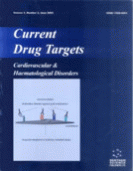Abstract
The use of animal organs for transplantation in humans is seen as a potential solution to the short supply of human donor organs available for clinical transplantation. However, to develop this therapeutic option as clinical reality will require surmounting formidable obstacles. The primary immunologic barrier to pig-to-human xenotransplantation is hyperacute rejection (HAR), a phenomenon previously characterized as resulting from antibody binding and complement activation. This article will first review recent progress in the development of specific strategies to overcome hyperacute lung rejection (HALR), through production of genetically engineered pig organs, modification of the host innate immunity and control of antibody and complement. Additional therapeutic targets identified in HALR are reviewed, with particular emphasis on recent studies describing a critical role for the coagulation cascade in HAR.
Keywords: immunosuppression, delayed xenograft rejection (dxr), porcine endothelial cells(pecs), c esterase inhibitor, anti-pig antibodies, complement cascade, eicosanoid, pulmonary intravascular macrophages (pims), thrombin/anti-thrombin (tat), porcine aortic endothelial cells (paec)
 1
1











